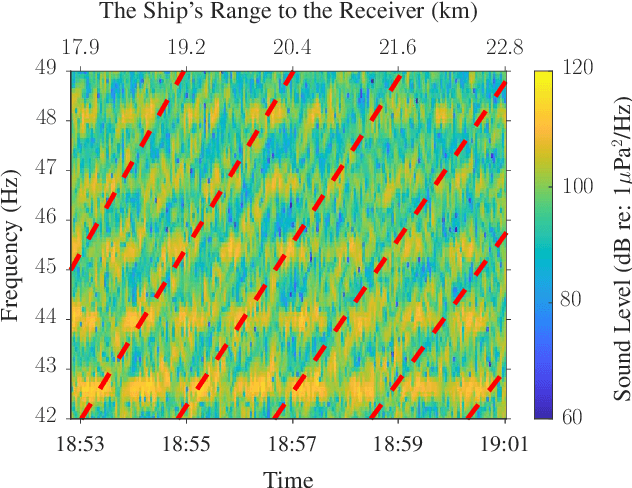A New Statistical Model for Waveguide Invariant-Based Range Estimation in Shallow Water
Paper and Code
Dec 03, 2024


In the undersea environment, positioning is often challenging, and thus, ranging based on passive acoustic data can provide valuable information for subsurface navigation and source localization. We present a range estimation method based on the waveguide invariant (WI) theory that uses ship noise recorded underwater as an acoustic source. The WI is a scalar parameter that describes the interference patterns in spectrograms caused by pairs of modes of acoustic waves propagating in a waveguide, e.g., in shallow water. The WI theory enables ranging using a single receiver without a detailed knowledge of the environment. The machinery of a large ship induces broadband background noise characterized by sets of prominent narrowband tonal signals. We develop a likelihood function for a WI-based range estimation by introducing a statistical model for the broadband component when it dominates over the background noise. The capability of the resulting range estimation method is demonstrated on real acoustic measurements of a moving container ship recorded during the Seabed Characterization Experiment 2017 (SBCEX17).
 Add to Chrome
Add to Chrome Add to Firefox
Add to Firefox Add to Edge
Add to Edge